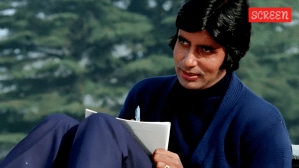Pakistan links nuclear tests to Kashmir
GENEVA, May 29: A day after Islamabad said it had matched India's five nuclear tests, their chief disarmament negotiator solidly linked the ...

GENEVA, May 29: A day after Islamabad said it had matched India’s five nuclear tests, their chief disarmament negotiator solidly linked the Kashmir question to the nuclear blasts in India and Pakistan, saying this response was "necessary and legitimate" to protect Pakistan from the designs of "aggressive Hindu nationalists" in New Delhi.
"Kashmir is the reason why tensions are so high between the two countries," Munir Akram, Pakistan’s chief diplomat to the United Nations (UN) in Geneva said, adding that resolving the Kashmir question held the key to restoration of peace in South Asia.
"If you see the rise of rhetoric in India in recent months…the first step that will be taken to translate that into operation would be in Kashmir," he said, adding that Pakistan, though ready and willing for international mediation to resolve that dispute, would remain on full military alert.
"We created Pakistan to escape Hindu domination — our tests are not provocation but a matter of Pakistani pride andindependence," Akram told journalists. The Pakistani diplomat evaded a question on whether his country’s nuclear capability was indigenous, by simply stating, "Well, I can say that it is certainly more indigenous than India’s."
Pakistan has always denied it had a secret weapons programme and has often spoken out at UN disarmament fora, urging the West to restrain India while painting itself as a victim. Akram accused Western Governments of turning a blind eye to happenings in India by allowing the "BJP Government in New Delhi to do what it wants".
He served them notice to decide how many members the international nuclear club now had before any negotiations on capping of fissile material or even total and complete nuclear disarmament could begin.
He said even though the problem concerned two countries in South Asia, the seriousness of the issue required a broad-based multilateral coalition if it had to be resolved, beginning with deciding if India was a full member of the nuclear club. "Pakistan iswilling to enter into dialogue with India or any other major powers" to seek a solution to this dispute, he said.
Akram said the Geneva-based Conference on Disarmament (CD) by failing to talk nuclear disarmament, had contributed to the deteriorating situation between India and Pakistan. Meanwhile, in New York, the UN Security Council failed on Thursday to agree on a statement deploring the Pakistani blasts as China held out. Pakistan has long been suspected of having a covert nuclear exchange programme with China.
The CD, of which the nuclear five are members, has stubbornly refused to enter into nuclear disarmament talks arguing that the time is not ripe for such an undertaking. It is trying to launch negotiations to halt production of nuclear-bomb making fissile material (plutonium and highly enriched uranium) known as the "cut-off" talks.
This was also the forum that negotiated the controversial Comprehensive Test Ban Treaty (CTBT) from which both India and Pakistan have abstained as they have fromthe 1970 nuclear Non-Proliferation Treaty (NPT).
Quizzed on the CTBT, (Pakistan has said it will sign if India does), Akram said "It is no longer enough for India to say it will sign the CTBT — we want the international community to clarify whether there are now five, six or seven nuclear weapons states before we can be expected to take part in any global arms negotiations."
Akram said Pakistan kept all its options open including that of inducting sophisticated weapons as part of its nuclear preparedness against any attack from India. Even as he spoke to Geneva-based journalists at the UN, Pakistan announced it was a nuclear power with nuclear weapons.
Asked if Pakistan would conduct further tests unlike India’s self-declared moratorium after its second round of tests on May 13, Pakistani diplomat still held out the "threat" of an Indian attack and said his country was on full alert.
Western diplomats have been quick to point out that they have no reason to believe India is preparing to attackPakistan. "Its rather obvious that the argument is being used by Pakistan to justify its blasts, but the situation nevertheless remains worrisome," one Western diplomat said.
The series of tests by both countries has thrown the Western-driven international security concerns into a tailspin seen notably in the failure of the five declared and accepted nuclear weapons powers — France, United States, United Kingdom, Russia and China — to come up with a responsible response to India’s call for total and complete nuclear disarmament.
Commenting on the sanctions, Akram said his country was used to living with the worst of sanctions imposed by the best of its allies. "The question is …are sanctions justified if a country protects itself," he asked.
He said as far as South Asia was concerned, the NPT was dead.



- 01
- 02
- 03
- 04
- 05



























